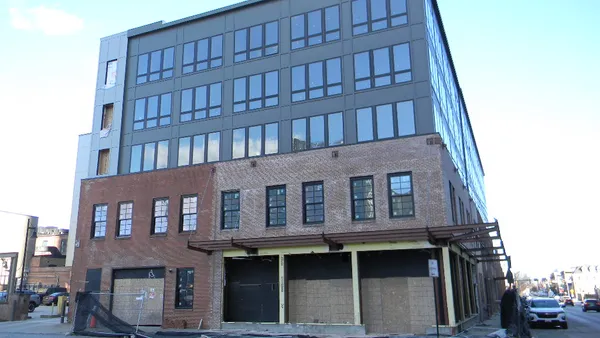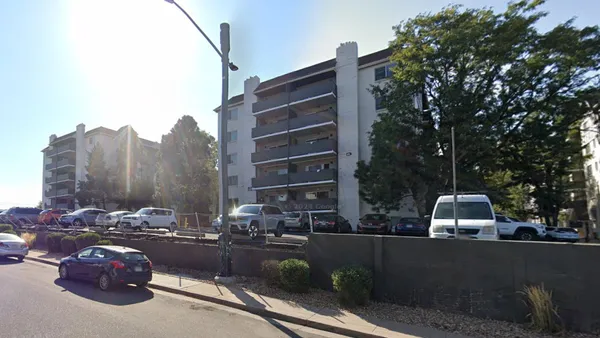Dive Brief:
-
A Colorado bill that would have given local governments a tool to create affordable housing from residential or mixed-use multifamily properties for sale was vetoed by Gov. Jared Polis, according to a Tuesday letter he sent to the state legislature.
-
The bill would have given local governments the right of first refusal in purchasing such properties if they could match an acceptable offer and if they planned to use the property as long-term affordable housing. Polis said he vetoed House Bill 23-1190 because it was mandatory and might have led to higher rents, delays and confusion.
-
The bill’s co-sponsors — Reps. Andrew Boesenecker and Emily Sirota and Sens. Sonya Jaquez-Lewis and Faith Winter — clapped back, saying in a statement that “The Governor has sided with the interests of private equity, hedge funds, and their powerful corporate lobbyists over and against the affordability concerns of people in our state.”
Dive Insight:
The bill aimed to improve the state’s affordable housing supply by making it easier for local governments to preserve existing developments. Some pro-business groups, including Colorado Concern, opposed the legislation over liability and insurance concerns that they said could lead to increased borrowing costs for real estate developers and curb multifamily housing investment in the state.
Mike Kopp, president and CEO of Colorado Concern, said in a LinkedIn post that “aside from [the bill] missing the mark in terms of creating more supply, we had serious concerns about the strong likelihood that HB23-1190 would have opened the floodgates of new lawsuits against property owners, even as their fundamental property ownership interests were being weakened by the effect of the bill.”
The bill’s co-sponsors said in their statement that many of the bill’s opponents, including Colorado Concern, had purposely stayed out of the deliberations over the bill, which had been in the works since last spring, until the last minute in an attempt to kill it.
“Many, if not most, of the organizations that requested a veto after the legislative session ended did not engage during the legislative process and made no amendment requests of the bill sponsors. We believe this was intentional,” the statement says. “Backroom conversations and last-minute veto letters should not usurp the public and lengthy legislative process.”
The co-sponsors also went after Polis for his seeming about-face.
“It is alarming that the Governor has vetoed HB23-1190, given the fact that the Governor's office was engaged in helping us count votes on the policy as late as the last week of session. The Governor also received his requested changes regarding timelines, waiver process, and unit Thresholds,” the statement says. “Our coalition was assured on numerous occasions that a veto was not being contemplated — until it was once the corporate lobby went to work.”
In his letter, the governor said he supports “local governments’ ability to buy these properties on the open market” and policies that would make it easier for them to do so, including dedicated financing mechanisms.












